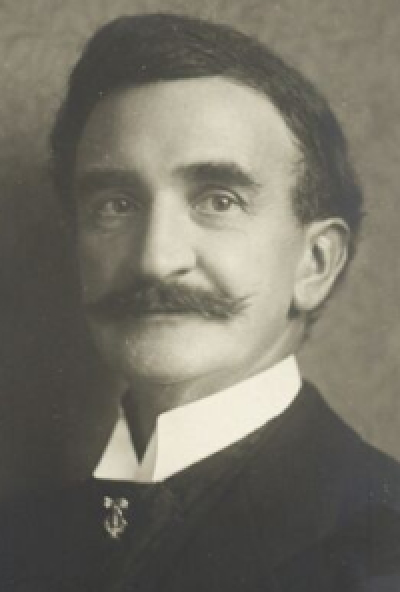Playlist 28 February 2021 |
Recording Details |
|
| Rhythm and Blues – Philip Sparke | Opening for weekly show Foden's Band MD: Michael Fowles - 2010 | 'Patrons' Choice III' - CD - Egon CD-SFZ154 - 2010 |
| Tremont - March - Howard Evans | Wellington Citadel Salvation Army Band (New Zealand) BM: Bert Neeve - 1971 | 'Marching with the Wellington Ciyadel Band' - Vinyl - Fidelity Sound Recordings FSRS-1275 - 1971 |
| Overture Beatrice and Benedict - Hector Berlioz arr. Keith Wilkinson | Enfield Citadel Band BM: Jonathan Corry - 2009 | 'Classically Enfield' - CD - SP&S -SPS256 - 2009 |
| Moonlight on the Alster - Oscar Fetras | Sirdar Wakefield Band MD: Peter Kitson - 1977 | 'Sirdar Wakefield Band & Akkordeon Orchestra Castrop Rauxel' - Vinyl - Look Records LK/LP 6260A - 1977 |
| Selection: West Side Story - Leonard Bernstein arr. Denis Wright | Whitworth Vale & Healey Veterans Band MD: Roy Newsome - 2004 | 'Celebrating 10 Years On' - CD - WV&HB CD001 - 2004 |
| Dear Lord and Father of Mankind - Hubert Parry arr. C. Bolton and Eric Banks | Hoyland Band MD: David Moore - 1998 | 'Kaleidoscope' - CD - HCCD001 - 1998 |
| Aria - John Golland | Brighouse and Rastrick MD: Allan Withington - 1993 | 'Aria' - CD - Kirklees - KRCD1012 - 1993 |
| Twilight Serenade - Kees Schoonenbeek | Euphonium Soloist Steven Mead with the Desford Colliery Caterpillar Band MD: James Watson - 1989 | 'Continental Brass' - CD - De Haske Recording DHM 3002.3 - 1989 |
| So In Love from the musical Kiss Me Kate - Cole Porter arr. Kazuhiro Morita | Brass Band De Bazuin Oenkerk (The Netherlands) MD: Klass van der Woude - 2007 | 'Far from Over' - CD - De Haske Recording DHR 03-046-3 - 2007 |
| Poet and Peasant - Franz von Suppe arr. George Hawkins | Cory Band MD: Philip Harper- 2016 | 'Elemental' - SP&S Label DOY CD359 - 2016 |
| How to Train Your Dragon arr. Klaas & Titus van der Woude | Brass Band Spijkerpakkenband (The Netherlands) MD: Erik Janssen - 2013 | 'Jeanius Music' - CD - www.spijkerpakkenband.com/ ...2013 |
| Sur Un Theme Favori - Jean Baptiste Arban arr. Gary Westwood | Cornet Soloist Russell Gray with the Leyland Band MD: Michael Fowles - 2008 | 'The Arban Collection II' - CD - Egon Recording SFZ 145CD - 2008 |
| The Northern Lights of Old Aberdeen - Mary Webb arr. Alan Duguid | Regent Brass MD: Alan Duguid - 2012 | 'On a Mission' CD - www.regentbrass.com - 2012 |
| Symphonic Suite from Mary Poppins arr. Andrew Duncan | Longridge Band MD: Mark Peacock - 2012 | 'Pass Time with the Longridge Band' - CD - 2012 |
| Charivari - John Iveson | Trumpet Soloist Ben Godfrey with the Yorkshire Buildings Society Band MD: Nicholas Childs - 1995 | 'Listen to the Band - Brass Spectacular' - WMEM 0003-2 - 1997 |
| To the Hills - Brenton Broadstock | Melbourne Alumi Staff Band (Australia) BM: Colin Woods - 2018 | 'To the Hills' - CD - BTB Music CD01 - 2018 |
| Prelude On Tallis - Peter Graham | Fountain Creek / Pike Peaks Brass Band (Colorado Springs USA) MD: Debbie Baker - 2011 | 'Seize the Day' - CD - www.fcbrassband.com - 2011 |
| The Salvation Army March - J. P. Sousa arr. Ray Steadman-Allen | Amsterdam Staff Band (The Netherlands) BM: Howard J. Evans - 2002 | 'The Rising of the Sun' - CD - SP&S Recording SPS 162CD - 2002 |
| Le Pere le Victorie - Louis Ganne | Harry Mortimer All Stars Band MD: Harry Mortimer - 1963 | 'Stars in Brass' - Vinyl - EMI Records SCX3484 - 1963 |
| Rhythm and Blues – Philip Sparke | Closing for weekly show Foden's Band MD: Michael Fowles - 2010 | 'Patrons' Choice III' - CD - Egon CD-SFZ154 - 2010 |
Sunday Bandstand 28 February 2021

Oscar Fetrás (16 February 1854 – 10 January 1931) was a German composer of popular dance music, military marches, piano pieces, and arrangements.
He had over 300 compositions to his name and his best-known is his waltz "Mondnacht auf der Alster" (Moonlight on the Alster) Op. 60 which is still very popular today.
He was born as Otto Kaufmann Faster in Hamburg. His father Matthias Faster was an editor of a stock-exchange magazine. The family originally came from Bützfleth, a locality of today's Stade near Hamburg.
Early in his career he worked for Ferdinand Laeisz founder of the Flying P-Liner (The Flying P-Liners were sailing ships). Gradually he became widely regarded as being on the same level as the Viennese waltz kings. Aged 26, his compositions attracted the attention of a Hamburg publisher, who advised him to change his name. He changed his name to Fetrás, an anagram of his surname Faster.
It might have been Franz von Blon, at that time the conductor of the Stadttheater Orchestra, who introduced "Moonlight on the Alster" at the inaugural concert for the 1888 ball season. It was a sensation and earned Fetrás the title of "The Hamburg Waltz King".
He remained well-known and respected and though definitely a second rank composer in the Viennese style, he produced some 300 works. Fetrás died January 1931 in Hamburg and was buried in the Ohlsdorf Cemetery.
In 1943, during the bombing of Hamburg during the Second World War the original score of "Moonlight on the Alster" was destroyed. Much of his work has disappeared from the mainstream repertoire since then. This was primarily due to the many outlets of music publishers and music parts libraries which issued his material being destroyed during the bombing which left no publishers to issue his material to this day.
In Hamburg-Rahlstedt the street Fetrasweg is named after him.
Today, we feature his best known waltz – "Moonlight on the Alster".



















